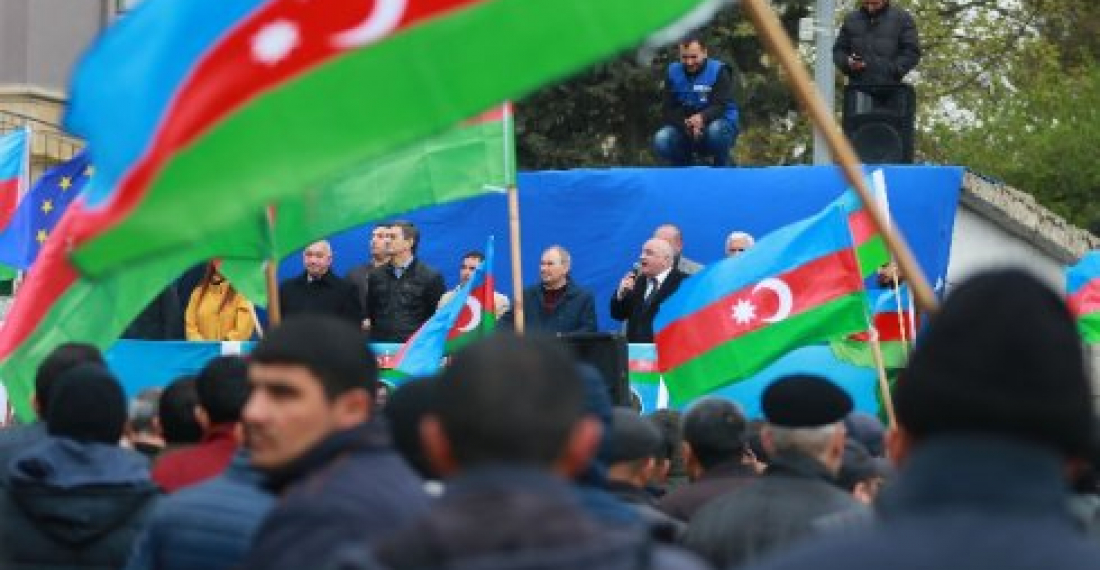Several thousand people demonstrated in Baku's Yasamal district on Saturday, 14 April, calling for the cancellation of the results of presidential elections held on 11 April, citing massive electoral fraud. The rally was organised by the opposition groups National Council of Democratic Forces and Musavat Party
The leader of the Popular Front Party of Azerbaijan (PFPA) Ali Kerimli told the rally that once again, the authorities falsified the election.
The leader of the Musavat party, Arif Hajili, called the early elections "elections without choice."
The head of the National Council of Democratic Forces Jamil Hasanli called the elections " a farce", as they were uncontested. In his opinion, the conclusion of the international observation mission with the participation of representatives of the OSCE, PACE and the OSCE PA was a confirmation of the falsification of the elections.
The independent Turan news agency reported that participants of the rally periodically chanted the slogan "Freedom!", "Resign!", "Ilham, Go!" and showed a symbolic "red card". The agency said that several thousand people took part in the action but Baku City Police estimated the number of participants in the rally as 1,000 people. According to the police, there were no serious violations of the law during the activity, the agency said.
source: commonspace.eu with agencies
photo: An opposition rally in Baku on 14 April 2018 (picture courtesy of Turan news agency)






